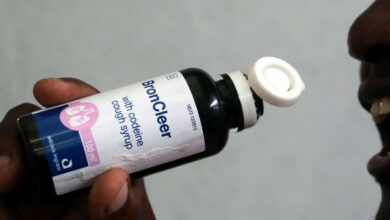
Africa has the highest global mortality rate of critically ill Covid-19 patients with a death rate of 48 percent compared to the global average of 32 percent, says a study published by a leading medical journal, The Lancet.
As of May 24, 2021, there are 167 million global cases of Covid-19, including 3.46 million deaths reported by the World Health Organisation (WHO).
According to the study, Covid-19 is now the 12th leading cause of death worldwide, the sixth leading cause of death in high-income countries, and the 41st leading cause of death in sub-Saharan Africa.
However, it is acknowledged that it is unclear why there are lower numbers of cases and deaths reported in sub-Saharan Africa, although inadequate levels of testing are cited as a possibility.
The study titled the African COVID-19 Critical Care Outcomes Study (ACCCOS) was done by observing 64 hospitals in South Africa, Malawi, Mozambique, Ghana, Kenya, Nigeria, Egypt, Ethiopia, Libya and Niger between May and December 2020.
This possibility could translate to unreported Covid-19 deaths (both in hospital and those that occur outside of the hospital.
Despite having low Covid-19 mortality rates, the study concluded Africa has the highest global mortality rate in patients who are critically ill.
“That is 48.2 percent (1 483 of 3 077 patients) against a global average of 31.5 percent. In addition to the previously reported drivers of mortality (for example, the patient’s disease severity at presentation and having comorbidities such as HIV/AIDS, diabetes, and chronic liver disease), the ACCCOS Investigators found having HIV/AIDS (odds ratio 1:91) and delayed access to high-care units and intensive care units (2:·14) were drivers of mortality,” read the study.
Some of the insights into possible causes of high death of critically ill patients in Africa included shortage of critical care and underuse of available resources even though the continent has lower Covid-19 cases and overall lower mortality rates.
“Underuse of resources is an intriguing finding and contrary to popular belief that resources are scarce. It is shocking to see 68 percent of hospitals had access to dialysis but only 10 percent of the patients received it, as well as to see that proning was not optimised,” said the study.
“It is important to think beyond the availability of resources and to also consider issues of functionality. It is common in Africa to have expensive equipment that is non-functional due to poor maintenance or lack of skilled human resources.”
The high Covid-19 related mortality in Africa was said to be also a reflection of the virulence of SARS-CoV-2 as a pathogen.
“Never before has the world seen a disease that causes the severity of respiratory failure like one caused by SARS-CoV-2. Viruses constantly mutate, leading to variants. Variants of SARS-CoV-2 have recently emerged, including B.1.1.7, a highly transmissible variant that was initially identified in the south of England in September 2020; P.1, circulating in Brazil since the middle of 2020; and B.1.351, which was first detected in South Africa in late 2020,” said the study.
“The capacity to detect variants in Africa is limited because of inadequate skill and infrastructure for genomic sequencing. The variants have been associated with increased transmissibility and could affect the effectiveness of Covid-19 vaccines. The role of SARS-CoV-2 variants in disease severity is unclear, with only a few reports of increased severity,” said the study with acknowledgment that since Africa has severe shortage of sequencing, it could take a long time to answer if variants were responsible for the severity observed.
The researchers noted this study has several strengths, including large sample size, robust analyses, as well as having a multisite and prospective design.
However, the authors recognised some limitations, including that the study was done in tertiary hospitals.
“Moreover, 23 (36 percent ) of 64 hospitals were in South Africa and Egypt, which are better-resourced countries compared with some other African countries; mortality is probably higher in lower-income African countries. Missing data were overcome by imputation,” said the study.
The study noted half of the patients (one in two) died without receiving oxygen but the authors did not report the reasons.





